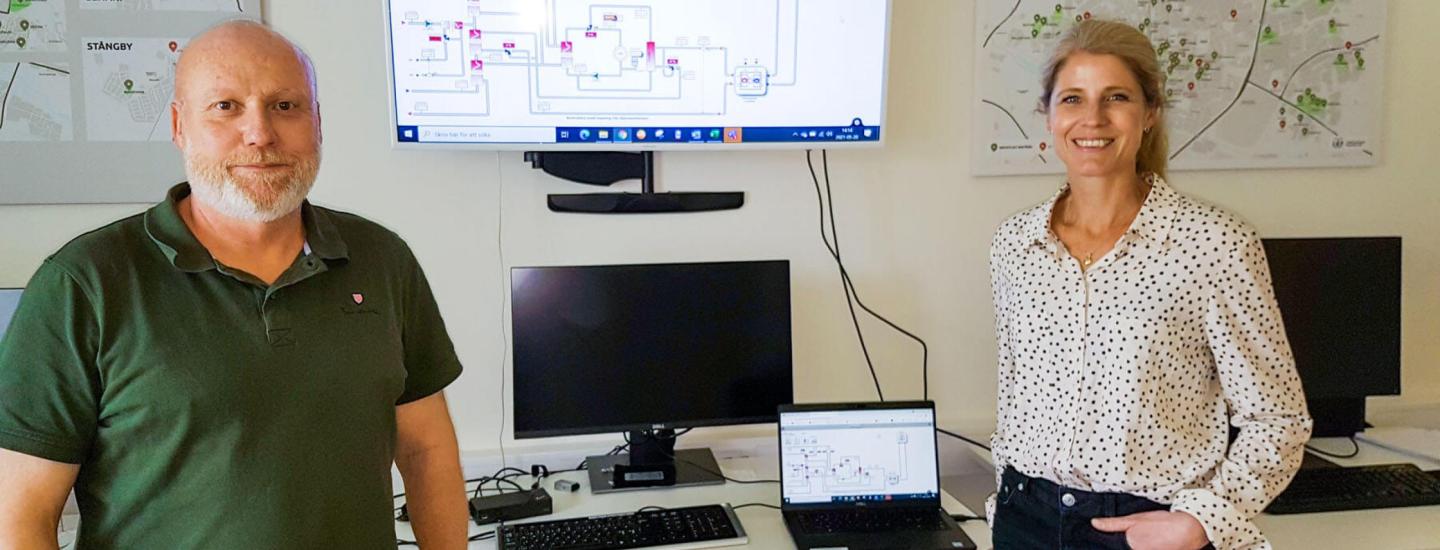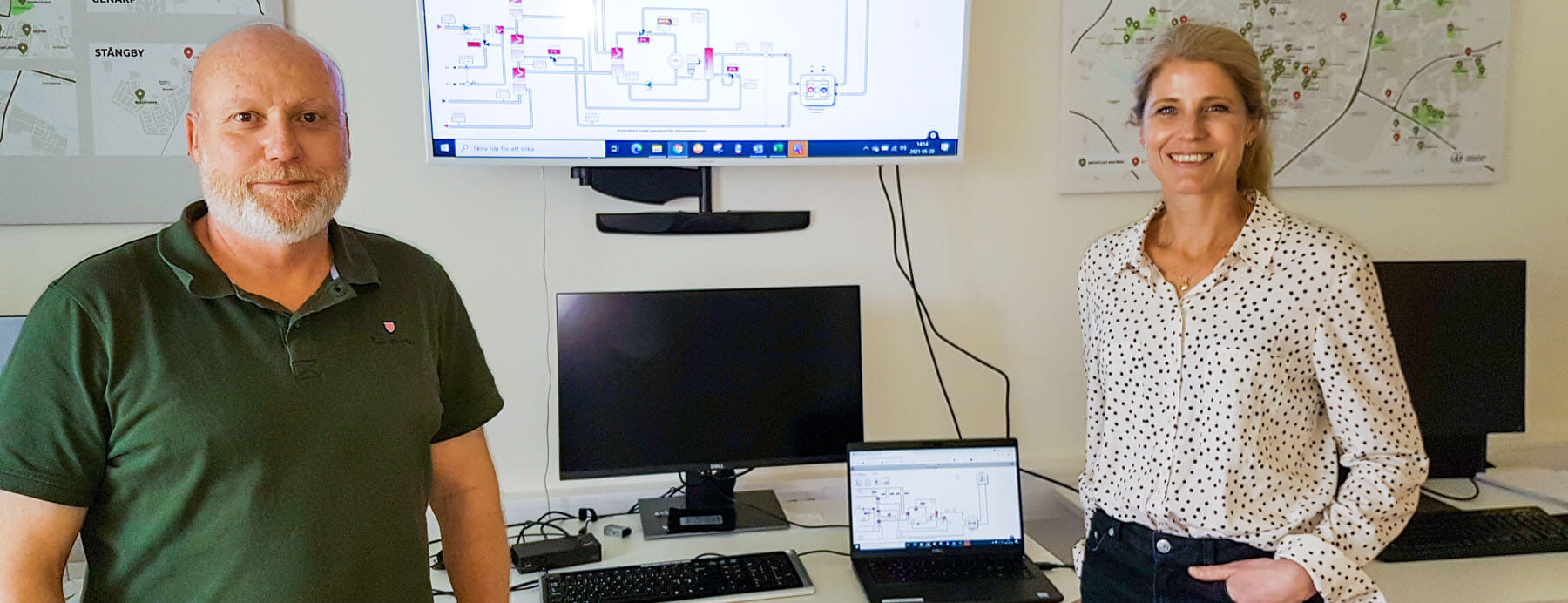
Hybrid Heating in Swedish residential block reduces energy consumption by 42.5 percent
The municipal housing operator Lunds Kommuns Fastighetsbolag AB (LKF) owns and manages 10,200 rental apartments in the Swedish municipality of Lund. More than 20,000 residents have their homes in LKF properties. In the summer of 2019, the installation of Hybrid Heating was started in one of these buildings. This initiative was actually a pilot project, since a systematic evaluation of the expected energy savings by the new technology was planned after a prolonged period of operation. By now this analysis has been carried out – and the result exceeds the high expectations with an impressive margin.
A well-planned pilot project
The property selected for the installation is a residential block erected in 1946 and comprising 24 small rental apartments. Dan Johansson is an Operations Engineer at LKF, and one of the employees who participated in the project actively. He describes the background.
- Through our contacts with the municipal power company Kraftringen, we had heard about the hybrid technology developed by HögforsGST. We realized that there was an interesting potential for energy-saving in those of our properties meeting the requirements for installation of Hybrid Heating. We decided to put the new technology to test and to undertake a thorough analysis after an extended period of operation. We picked a suitable residential block – Lärlingen (The Apprentice) – where the heating and ventilation systems were ripe for replacement and where there was plenty of space for the heat recovery battery, filters and other equipment to be mounted in the attic.
During the summer of 2019, the installation started with a systematic mapping of the thermal properties of the building. Air flow, air volumes, etc. were measured. In December 2019, the new technology was in place and set for operation. Throughout the process, LKF was in continuous contact with Kraftringen. Among other things, a cooperation agreement and a financial analysis were developed jointly.
Dramatic savings and a great potential
The evaluation of the energy-saving effect brought by Hybrid Heating was completed in mid-April this year. It comprises the period from December 20, 2019 to April 15, 2021 and indicates a total net drop of the energy consumption (the energy required to run the system included) by 42.5%.
Dan Johansson believes that this figure can be improved even further.
- When we carried out the evaluation, we measured a number of key parameters. Among other things, we found that the exhaust air from the ventilation had a lower temperature than expected. There was obviously an energy leakage somewhere. Now we know that the garbage chute in the building caused this leakage and will therefore be able to fix it.
Dan Johansson points out that the “pilot installation” indicates an exceptionally large saving potential in the long-term perspective, i.e. if the company gradually installs Hybrid Heating in buildings meeting the relevant requirements.
- Certainly. I will not juggle with numbers, but in the long run the potential is no doubt promising. We have an intense dialogue with HögforsGST and are following the technological development closely. Next, we will participate in a project evaluating a new coupling principle that HögforsGST has developed. It allows you to use the energy in the return water to the district heating network for heating the apartments during certain periods.
Increased focus on energy efficiency
The housing sector accounts for some 40 percent of the total energy consumption in Sweden. LKF and the country's other housing companies therefore have a social responsibility along with an important strategic role in the pursuit of energy-efficiency. Within LKF, an Energy Unit with specialized resources in this field was established in 2020. Its director Linda Egin took up her post at the beginning of that year. She was attracted by the measures that were already taken by the company.
- The electricity and heat used by LKF were already produced without fossil fuels. Since 2013, LKF had also reduced the energy consumption in its homes by 2kWh per square metre of living space annually. The creation of the Energy Unit indicated a distinct focus on energy-efficiency and a willingness to work systematically. No wonder you were drawn to such a job!
Linda Egin's working days at LKF involve the management and coordination of project work at many levels.
- It is stimulating to work with energy-efficiency right now. In recent years, a solid teamwork culture has developed within our company and energy issues are a high priority, both with us and in society at large. The results of our work are chiefly measurable, and the intense technology development brings us new opportunities – with Hybrid Heating as one representative example.
Read more about Hybrid Heating

Operations Engineer Dan Johansson and Energy Director Linda Egin. The monitor in the background shows the installation of Hybrid Heating in the Apprentice block in Lund.
